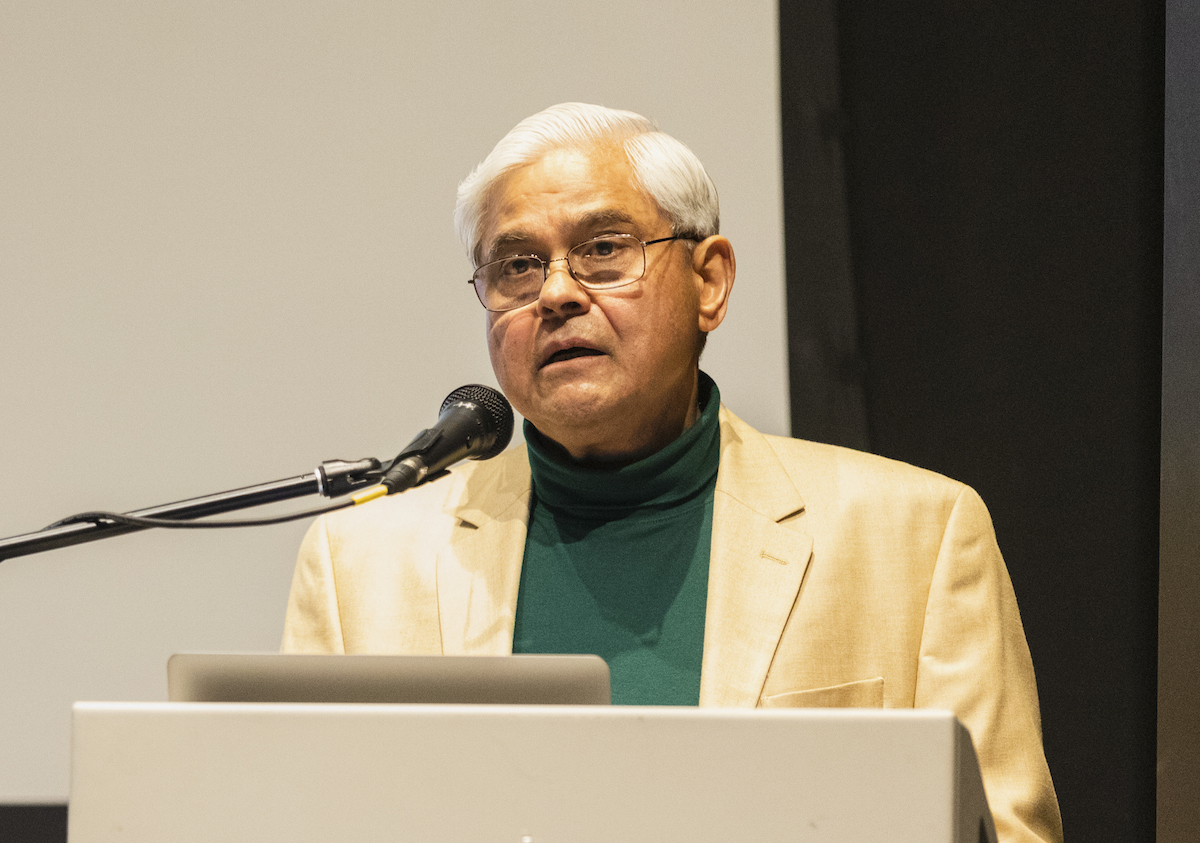
A remarkable journey has brought George Mason University Professor Jagadish Shukla from his childhood in rural India to world prominence as a climate researcher.
Shukla, a professor since 1994 and founder of the university’s Department of Atmospheric, Oceanic and Earth Sciences (AOES), has gained international recognition for Mason in that field. He established the Climate Dynamics PhD program at Mason—first in the country—which has produced 50 PhDs.
In 1979, Shukla joined the NASA/Goddard Space Flight Center in Maryland, becoming head of the climate modeling group. There he pioneered an influential insight, an exception to the famed “butterfly effect,” which describes the unpredictable nature of long-term weather conditions.
Using early versions of climate models, Shukla demonstrated that phenomena such as seasonal mean temperature and rainfall, especially in tropical regions, were more predictable than previously understood—what he called “predictability in the midst of chaos.”
In 1984, Shukla co-founded the Center for Ocean-Land-Atmosphere Studies (COLA), then at the University of Maryland. Later, he and his colleagues began collaborating with Mason students and researchers. In 2014, COLA officially became a center in Mason's College of Science.
Along the way, Shukla’s reputation grew. The author or coauthor of more than 250 scientific papers, he received the International Meteorological Organization Prize, the field’s highest honor. He modernized India’s weather enterprise by helping the establishment of a center for numerical weather prediction and monsoon forecasting on India’s first supercomputer in New Delhi.
Education has always been a priority for Shukla. Growing up in a village without roads or electricity, Shukla attended a school started by his father, the only person in the village who could read. For the past 40 years, he has returned to India each year, visiting his home village of Mirdha, where he and his wife, Anastasia, fund education and women’s empowerment programs. In 1999, he founded Gandhi College, which has about 800 students, the majority women.
The Shuklas have also created the Jagadish and Anastasia Shukla AOES Fellowship Endowment in the College of Science, which will support graduate students pursuing the PhD in climate dynamics, a degree he helped establish. Theirs is among the largest philanthropic commitments ever from a Mason faculty member.
